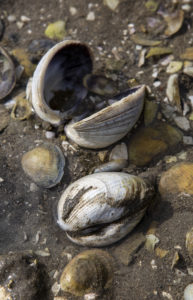
The Howick Local Board is backing a proposal to place a year-round ban on shellfish harvesting at Cockle Bay Beach.
Its members voted to support the revocation of the beach’s existing seasonal closure and replace it with a full ban on the “recreational taking of intertidal shellfish as a sustainability measure” under the Fisheries Act 1996.
The move comes after Fisheries NZ called for public submissions on two options it’s considering to restore the beach’s dwindling shellfish population.
The first option is to make no changes to the existing management regime for the beach’s intertidal shellfish.
Option two is to revoke the seasonal closure and replace it with a full, year-round ban.
Cockle Bay Beach has been included seven times in the northern intertidal shellfish monitoring survey starting with the 2009-2010 fishing year.
The last survey, in 2019-2020, shows a major drop in the abundance and density of large cockles from a peak of 36.46 million in 2012 to 11.75 million in 2019.
The number of large cockles at the beach is at its lowest level since the first survey in 2009-2010.
They were 72 per cent of the population in 2015-2016 but only 26 per cent in 2019-2020.
The beach’s current seasonal closure allows people to harvest up to 50 cockles per day between May 1 and September 30, but there’s no limit to how many people can collect there each day.
The Howick Local Board recently voted on an urgent decision to provide feedback on Fisheries NZ’s proposed changes to fisheries sustainability measures for 2021.
The board passed a resolution stating it supports replacing the beach’s existing seasonal closure with a full year-round ban on the recreational taking of intertidal shellfish.
The resolution says the board shares concerns about the recent 2019-2020 survey results which show a significant decrease in the abundance and density of large cockles at the beach.
It acknowledges “numerous environmental and human-caused factors influence the abundance and size of cockles at a beach” and supports Fisheries NZ’s view it is likely harvest pressure is at least “partially responsible” for the decline in the number of large cockles.
The resolution requests ongoing engagement with Fisheries NZ to explore the development of management strategies for the beach, and says the board supports the agency’s intent to continue to survey its shellfish bed periodically.
A spokesperson for the Ministry for Primary Industries previously told the Times that once all public submissions are received, Fisheries NZ will analyse feedback on the proposals to provide final recommendations to the Minister for Oceans and Fisheries, David Parker.
“The minister’s decision will be announced in due course prior to implementation of any changes which come into effect on April 1, 2021.”








